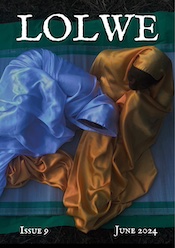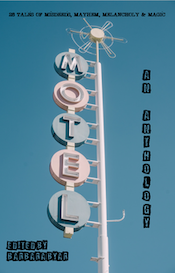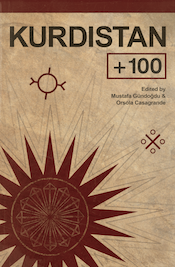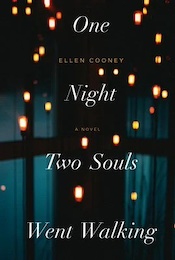Our editors share their recommendations for books to enjoy over the summer break
Lacey Dunham, Fiction Editor

Diane Josefowicz’s L’Air du Temps (1985) (Regal House, 2024) opens with a shooting and death, a man “bleeding out in the back seat of a yellow Mercury.” The surrounding ’80s suburban enclave—all shiny surfaces and boat-sized personal cars, backyard pools and well-tended lawns, MTV blinking from every living room television—is roiled by the murder, but only as far as the spectacle of the trial. At the center of the novel is teenager Zinnia. The dead man was her family’s neighbor and her father’s accountant. Gradually, in the way of observant teenagers, and through a retrospective narrative lens, Zinnia reveals the violence pooling just beneath the surface of her family life and the veneer of her neighborhood’s quiet normalcy. Her father’s minor acts of daily cruelties suffocate and silence Zinnia’s household, and her mother in particular is the frequent target of her father’s petty sadism. Yet Zinnia is sharp-minded and tender; she has a loving relationship with her dying grandfather and the family’s dog. This is a taut, gorgeously written novel that you’ll consume in a single afternoon but that will live with you for days after reading. (We acknowledge that a recommendation from one of our editors of a book by another of our editors is an unusual thing, but it is an honest and earnest recommendation nonetheless! — SH)
+
Michelle Bailat, Translations Editor

I begin with something that is not a translation but very much a part of the international literature we like to follow here at Necessary Fiction. Lolwe, a relatively new, pan-African literary journal was recommended to me by one of its recent guest editors, and following the powerful experience of reading its June 2024 issue, I am looking forward to spending my summer reading the other issues showcasing its four years of existence. Nothing I could say here would be as eloquent or convincing as just one of the stories from this issue — for starters, the utterly incredible “A grain of rice in the heart of genocide” by Chioniso Tsikisayi.

Moving from Africa to Sweden, Ia Genberg’s The Details (Hachette, 2023), translated by Kira Josefsson, is a neat quartet of a novel using four character portraits to tell a story—or multiple, unfolding stories—of one woman’s life as she remembers several people who were important to her from within the “fever dream” of an illness. The book is slender but intense, and much of its power resides in Genberg’s fantastic mirroring; the more details the narrator provides of each of her “subjects,” the more the reader can ultimately “see” the narrator.

Finally, over to Italy (via Cuba!) and not at all a “new” book: Forbidden Notebook by Alba de Déspedes (Pushkin Press, 2023), translated by Ann Goldstein, was originally published as a serial in 1951, then as a novel a year later. This diary-style narrative recounts the interior life of Valeria, living in a small apartment with her husband and two adult children in post-war Rome. Not just a record of Valeria’s thoughts and feelings, Forbidden Notebook is more interested in what the act of writing does in terms of creating, discovering, and negotiating the self. Despite its age and focus on somewhat well-trodden territory, the book is insightful, surprising, humane. (For more on Forbidden Notebook, see our April 2023 review by Katy Dycus.)
+
Diane Josefowicz, Reviews Editor
Having assigned myself only doorstopper novels for the year’s first half, I came into the second yearning for more varied literary company. Literary anthologies fit the bill—and for me, the more various, the better. As much as readers tend to love an “even” collection, and I confess I too am compelled by the feeling of my attention being held by a single sustained voice, evenness can be overrated, a close cousin to monotony. In all of these anthologies, what I loved most was the sheer variety—of styles, characters, voices, settings, and storytelling.

Of the three anthologies I read, Singa Pura-Pura: Malay Speculative Fiction from Singapore (Ethos Books, 2021), edited by Nazry Bahrawi, was the most purely transporting. Thirteen spec-fics by Singaporean Malay authors explore, to paraphrase Margaret Atwood, things that could really happen but hadn’t at the time of writing. In “Second Shadow” by Noridah Kamari, a political dissident whose burgeoning career makes him complicit in the government he detests, discovers that his shadow has bifurcated along with his interests, and the new arrival must be dispatched. In Nuralia Norasid’s haunting “Prayers from a Guitar,” an overbearing husband unearths a guitar hidden by his wife, a former musician who has become meek and quiet under his relentless scrutiny, and discovers the immutable—and to him, unbearable—fact of her separate existence: “Not even years of lessons and guidance could take the music out of his wife.” The anthology sheds needed light on Bahasa writers, whose influence on contemporary Singaporean writing is often overlooked.

One of the great strengths of Motel: An Anthology (Cowboy Jamboree, 2024), edited by Barbara Byar, is it rarely tells readers how to feel about the flawed characters who populate its pages. If some of Byar’s selections lean too hard on stereotypes—petty larcenists on the lam, meth heads with bad teeth, taciturn desk clerks—it’s hard to deny that motels, which are after all cheap and not too closely monitored, really are places to find people in the kind of trouble that makes for an interesting story. This collection of twenty-eight short pieces has something for everyone, from hard-boiled romps to movingly reflective literary fiction. A standout is Keith Pilapil Lesmeister’s “I’d Help If I Could,” in which Liz, screwed out of her job near the motel where she’s living, gets an unexpected chance to change her life—and for once, she takes it. Lesmeister captures a striking objective correlative of Liz’s passivity and despair when, on break, Liz stands behind her cash register staring into the distance: “Across the highway, a cluster of white pines stood around a crumbling cinderblock foundation. Further west, an abandoned church and graveyard.”

Kurdistan +100: Stories from a Future Republic (Comma Press, 2023), edited by Mustafa Gündoǧdu and Orsola Casagrande, collects thirteen stories from contemporary writers from Kurdish territories in Iraq, Turkey, Syria, and Iran, and the Kurdish diaspora. Nimbly translated by several collaborators, the stories range from eco-activist fables to a reparative fiction involving the return to life of victims of past massacres in Syria and Iraq. Many contain stark reminders of the ease with which scapegoat-seeking leaders decimate ethnic groups and of the steep price paid by those bold enough to say what’s happening. Meral Şimşek’s “Arzela,” a disquieting story of a persecuted community that takes refuge deep within a mountain until they are liberated by a miracle, was used as evidence against the author in a court proceeding; Şimşek faces up to twenty years in prison on trumped-up charges related to her writing. While Turkish authorities have seen “Arzela” as a blueprint for Kurdish liberation, they seem to have missed, or misunderstood, the ambiguity of its ending. It’s a heck of a blueprint that relies on miracles. In the light of their brutish, inhuman misapprehension Şimşek’s observation is on point: “We sometimes wondered if the whole human race had been annihilated.”
+
Steve Himmer, Editor
For a variety of teaching- and research-related reasons, most of the reading I’ve done in recent months has been non-fiction and the majority of the fiction I have read was student work or manuscripts of forthcoming books. So I can’t recommend it yet but look forward to doing so when the time comes.

I would like to recommend the novel Brian by Jeremy Cooper (Fitzcarraldo Editions, 2023), which I wrote about in our newsletter a few months ago. Brian follows its titular character across decades of regular attendance at the British Film Institute. That may sound dull but the magic of this book is how gripping and moving it is despite doing things writing students would be told not to do — all telling, little showing; little direct dialogue; few scenes, per se; the major dramas of the character’s life happening well off the page. The story of how Brian, a socially isolated fearful man already arriving at middle age, becomes part of a community of “buffs” and through his developing knowledge of cinema finds the courage to engage the world in other ways — without lapsing into the sentimental or syrupy transformation this might become in a less artful novel — has stuck with. Just a few days ago, in fact, I was reminded of it when a filmmaker colleague talked about something he’d seen and I ended up recommending the book to him. And while the novel is full of references to specific films, my own knowledge of cinema is haphazard at best so please don’t be put off by that. Though I imagine for someone who really knows film — like my colleague — that will only deepen the experience.

And I would also like to recommend a novel that is slightly older but so good it deserves some extra attention. One Night Two Souls Went Walking by Ellen Cooney (Coffee House Press, 2020) follows a hospital chaplain on her overnight rounds in a facility diminished by budget cuts and corporate squeezing. It is small in scope but vast in its attention to the struggle of everyday life and death faced both by its protagonist narrator and the patients she attends to. After reading the last page I sat quietly thinking about it for a very long time, and also being grateful for finding — via the recommendation of Michael Schaub, in this case — this very good novel of a kind that seems to be published less and less often.